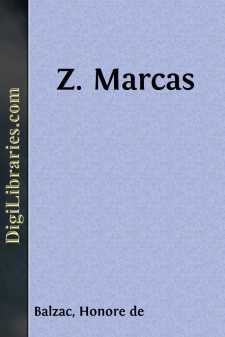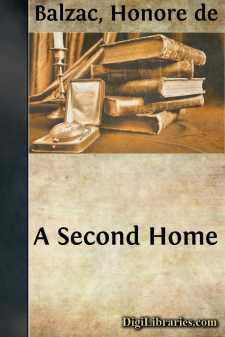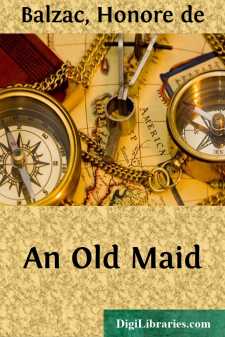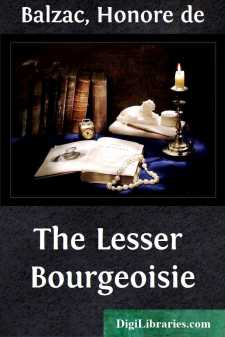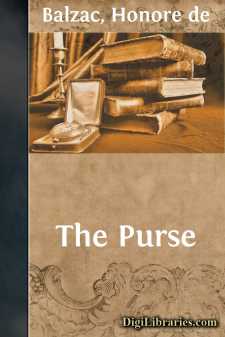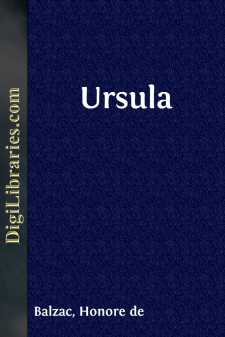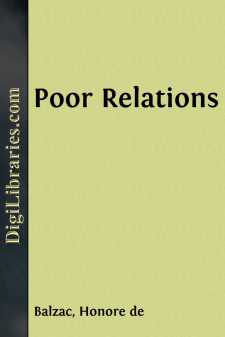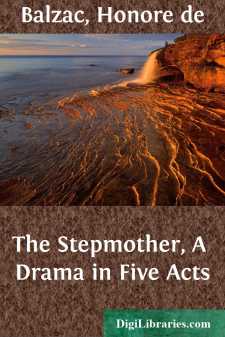Categories
- Antiques & Collectibles 13
- Architecture 36
- Art 48
- Bibles 22
- Biography & Autobiography 813
- Body, Mind & Spirit 142
- Business & Economics 28
- Children's Books 17
- Children's Fiction 14
- Computers 4
- Cooking 94
- Crafts & Hobbies 4
- Drama 346
- Education 46
- Family & Relationships 57
- Fiction 11829
- Games 19
- Gardening 17
- Health & Fitness 34
- History 1377
- House & Home 1
- Humor 147
- Juvenile Fiction 1873
- Juvenile Nonfiction 202
- Language Arts & Disciplines 88
- Law 16
- Literary Collections 686
- Literary Criticism 179
- Mathematics 13
- Medical 41
- Music 40
- Nature 179
- Non-Classifiable 1768
- Performing Arts 7
- Periodicals 1453
- Philosophy 64
- Photography 2
- Poetry 896
- Political Science 203
- Psychology 42
- Reference 154
- Religion 513
- Science 126
- Self-Help 84
- Social Science 81
- Sports & Recreation 34
- Study Aids 3
- Technology & Engineering 59
- Transportation 23
- Travel 463
- True Crime 29
Sort by:
by:
Honore de Balzac
Z. MARCAS I never saw anybody, not even among the most remarkable men of the day, whose appearance was so striking as this man's; the study of his countenance at first gave me a feeling of great melancholy, and at last produced an almost painful impression. There was a certain harmony between the man and his name. The Z. preceding Marcas, which was seen on the addresses of his letters, and which...
more...
by:
Honore de Balzac
A SECOND HOME The Rue du Tourniquet-Saint-Jean, formerly one of the darkest and most tortuous of the streets about the Hotel de Ville, zigzagged round the little gardens of the Paris Prefecture, and ended at the Rue Martroi, exactly at the angle of an old wall now pulled down. Here stood the turnstile to which the street owed its name; it was not removed till 1823, when the Municipality built a...
more...
by:
Honore de Balzac
CHAPTER I. ONE OF MANY CHEVALIERS DE VALOIS Most persons have encountered, in certain provinces in France, a number of Chevaliers de Valois. One lived in Normandy, another at Bourges, a third (with whom we have here to do) flourished in Alencon, and doubtless the South possesses others. The number of the Valesian tribe is, however, of no consequence to the present tale. All these chevaliers, among whom...
more...
by:
Honore de Balzac
CHAPTER I. DEPARTING PARIS The tourniquet Saint-Jean, the narrow passage entered through a turnstile, a description of which was said to be so wearisome in the study entitled "A Double Life" (Scenes from Private Life), that naive relic of old Paris, has at the present moment no existence except in our said typography. The building of the Hotel-de-Ville, such as we now see it, swept away a whole...
more...
by:
Honore de Balzac
THE PURSE For souls to whom effusiveness is easy there is a delicious hour that falls when it is not yet night, but is no longer day; the twilight gleam throws softened lights or tricksy reflections on every object, and favors a dreamy mood which vaguely weds itself to the play of light and shade. The silence which generally prevails at that time makes it particularly dear to artists, who grow...
more...
by:
Honore de Balzac
CHAPTER I. THE FRIGHTENED HEIRS Entering Nemours by the road to Paris, we cross the canal du Loing, the steep banks of which serve the double purpose of ramparts to the fields and of picturesque promenades for the inhabitants of that pretty little town. Since 1830 several houses had unfortunately been built on the farther side of the bridge. If this sort of suburb increases, the place will lose its...
more...
by:
Honore de Balzac
I. THE LORRAINS At the dawn of an October day in 1827 a young fellow about sixteen years of age, whose clothing proclaimed what modern phraseology so insolently calls a proletary, was standing in a small square of Lower Provins. At that early hour he could examine without being observed the various houses surrounding the open space, which was oblong in form. The mills along the river were already...
more...
by:
Honore de Balzac
INTRODUCTION La Cousine Bette was perhaps the last really great thing that Balzac did—for Le Cousin Pons, which now follows it, was actually written before—and it is beyond all question one of the very greatest of his works. It was written at the highest possible pressure, and (contrary to the author's more usual system) in parts, without even seeing a proof, for the Constitutionnel in the...
more...
by:
Honore de Balzac
ACT I SCENE FIRST (A richly decorated drawing-room; on the walls are portraits of Napoleon I. and his son. The entry is by a large double glass door, which opens on a roofed veranda and leads by a short stairway to a park. The door of Pauline's apartments are on the right; those of the General and his wife are on the left. On the left side of the central doorway is a table, and on the right is a...
more...
by:
Honore de Balzac
CHAPTER I. THE CHATEAU Les Aigues, August 6, 1823. To Monsieur Nathan, My dear Nathan,—You, who provide the public with such delightful dreams through the magic of your imagination, are now to follow me while I make you dream a dream of truth. You shall then tell me whether the present century is likely to bequeath such dreams to the Nathans and the Blondets of the year 1923; you shall estimate the...
more...


